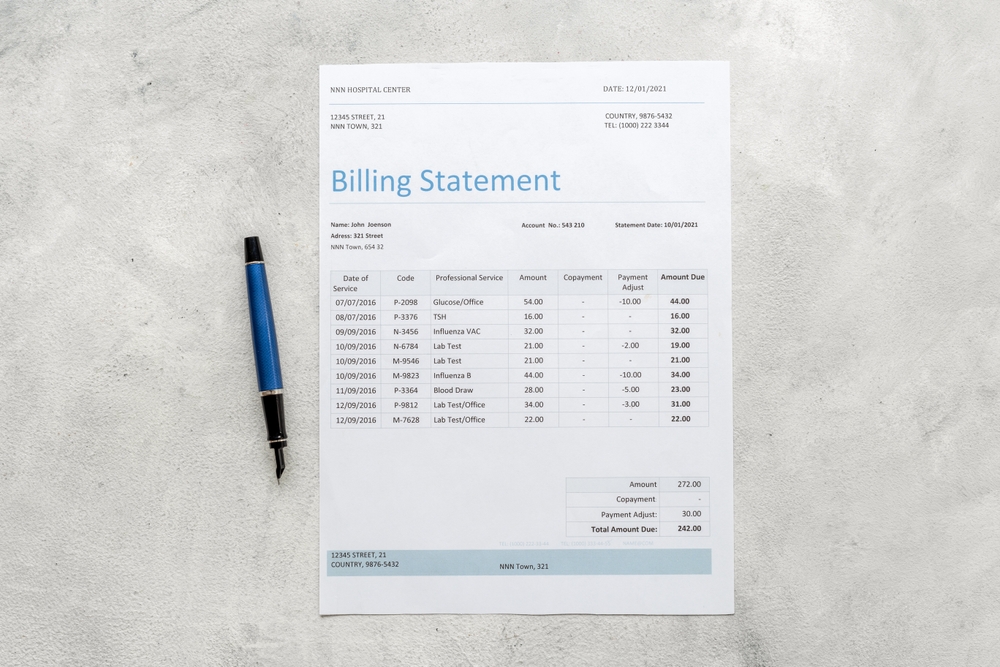Past Bills: Netro v. GBMC
The Baltimore Medical Malpractice Lawyer Blog delves into the intricate legal issues that arise in Maryland medical malpractice cases. In this post, we will unravel the issue of what past medical bills the plaintiff can recover, focusing on the Court of Special Appeals reported opinion in Netro v. GBMC, 238 Md. App. 62 (2018).
Factual Background
In this case, the decedent received medical bills totaling $451,956. The plaintiff and her insurers paid $389,014.30, having received $62,941.70 in write-offs. (Op. at 3).
The plaintiffs then filed survival and wrongful death claims against the hospital in the Circuit Court for Baltimore County. At trial, the jury favored the survival claim and awarded $451,956 in past medical bills but nothing for non-economic damages. The jury also rejected the wrongful death claims. (Id. at 4).
The hospital then filed a motion to reduce the verdict/judgment. (Id). CJP 3-2A-09 allows a motion for reduction by the amount of the write-offs. (Id. at 2). The plaintiff opposed the motion, arguing that the federal Medicare Secondary Payer Act preempted the Maryland Act. The reason is that Medicare had a medical lien that would recoup $18,500 less if the Maryland Act is applied. The trial judge granted the motion and reduced the verdict to $389,014.30. (Id. at 6-7). The plaintiff appealed on the preemption issue. (Id. at 7).

Court of Special Appeals on Past Medical Bills
Medicare’s right to recoup its payments includes lawsuits where someone is found liable for causing the injury that produced the medical bills. 42 U.S.C. § 1395y(b)(2)(B)(ii). This right did not always exist, but Congress established it in 1980. Congress created the right to repayment to achieve major savings. (Id. at 8-10). The plaintiff relied on this to argue that the Medicare law must preempt the Maryland law. (Id. at 12).
The court rejected the plaintiff’s argument. Even with the Maryland law, the hospital has to pay 100% of the paid medical bills to the plaintiff, who has to reimburse Medicare. The fact that Medicare has regulations that provide it pays for procurement costs, which in this case will be higher based on paid medical bills rather than total bills, does not change the shifting of payment under the Medicare law, which happened as dictated. (Id.). The Maryland law only restricts verdicts by prohibiting a plaintiff from recovering medical expenses never incurred. The Maryland law does not conflict with the Medicare provision that mandates full reimbursement of conditional payments made by Medicare. (Id. at 17).
Commentary by Baltimore Medical Malpractice Lawyer Mark Kopec on Past Medical Bills
The Court of Special Appeals’ reasoning is sound. The application of Maryland law specifically affected only the part of medical bills that no one paid. As a result, Medicare’s ability to seek reimbursement for what it paid was unaffected.
It is true that Medicare received less than it would have if the court had not applied the Maryland law. That is because Medicare regulations grant an accommodation for the procurement costs of the medical malpractice lawyer. If the lawyer could recover medical bills that no one paid, Medicare’s share of the procurement cost would be less than if the lawyer only recovered medical bills paid. However, Medicare chose that accommodation, and it does not negate its right to recoup.
Consequently, the application of Maryland law does not significantly interfere with the purpose or functioning of Medicare law.
Practical considerations
Next to a complete defense verdict, the jury’s verdict in this case was the worst thing that could happen to a plaintiff. The jury thought they were awarding the plaintiff approximately $451,000. Under the law, the court did not tell the jury that the court would reduce this verdict amount to the amount actually paid, $389,000. Nor did the court instruct them that Medicare would have a right to recoup the entire amount. The court also did not tell the jury that Medicare would reduce that reimbursement by an amount to allow a legal fee to the lawyer. Under the law, the jury does not get this information.
Do you see someone who needs to be added to this equation? The plaintiff. When the jury denied claims of pain and suffering of the decedent of state and family members and only awarded medical bills, they effectively were awarding the plaintiff nothing.
As a practical matter, after the trial, the plaintiff, the medical malpractice lawyer, and Medicare probably discussed how the money that was awarded would be split so that no one would be left out. All three probably received less than they had hoped from this case.
Mark Kopec is a top-rated Baltimore medical malpractice lawyer. Contact us at 800-604-0704 to speak directly with Attorney Kopec in a free consultation. The Kopec Law Firm is in Baltimore and helps clients throughout Maryland and Washington, D.C. Thank you for reading the Baltimore Medical Malpractice Lawyer Blog.





